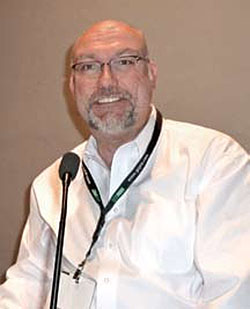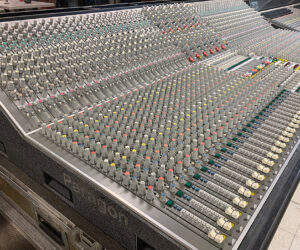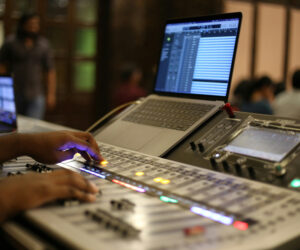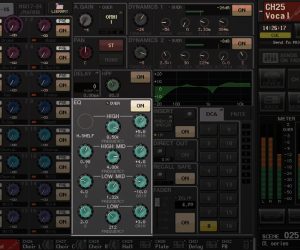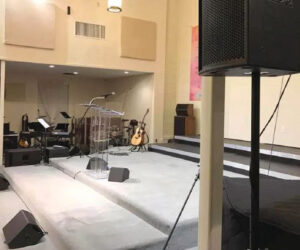“You know,” Ted Leamy says, “I’m always troubled when people ask me to write or be on panels, telling me, ‘we want to hear what you have to say,’ because I don’t know much of the math.”
“I just know you’re supposed to point the loud part toward the audience and turn it up.”
As understatements go, that’s a big one. Over the course of his career Leamy has optimized sound systems for a who’s who of important acts and venues of the past 30 years.
In every case, however, the experience of both those aiming the “loud part” and those on the receiving end of it have always been a major preoccupation for him; guiding his hand as both a systems engineer and businessman.
Consequently, when he talks about career highlights, he often focuses on people – the mentors, friends and acquaintances who have challenged him to excel and shown a path forward in good times and bad.
His experiences with Robert Scovill on the Rush and Def Leppard tours serve as a prime example.
“They were a technical highlight and a triumph,” he says. “Robert and I found a way to work together taking advantage of each other’s skills to blend the science of system design/optimization with the art of mixing. I learned to listen critically during those shows and rely little on instrumentation once the performance began.”
Born and raised in Union, NJ, Leamy started working in audio as a teenager. And while he cites a love of music as a major factor in his choice to do so, underlying that was a childhood attraction to science and technology.
“I was a geeky little kid. I had all my amateur radio licenses when I was seven or eight years old.”
Once he began working he saw no reason to interrupt his busy schedule by going to college. “While everybody else was attending shows, I was unloading trucks and rigging loudspeakers. Everything for me was practical. I think I was a bright young man; it’s just that liquor, women and music seemed a far better choice than an electrical engineering degree.”
By age 20, however, after a two-year stint with Teddy Pendergrass in the mid 1970s, Leamy began questioning his career choice. At the time he’d landed a regular gig at NYC’s infamous Great Gildersleeves, occasionally working at nearby CBGB to augment his pay.
“It sounds romantic, but those were terrible times. I wasn’t making any money. I was sleeping in a flophouse. It was dreadful.
“Still, there’s something to be said for keeping at it,” he continues, adding that if he’s remembered for any single trait in his career it would be perseverance, a “stick-at-it-untilit’s- done-right” theme driven, in part, by some of the more difficult experiences in his personal life. Experiences, by the way, he wouldn’t trade away for an easier journey.

